The trio of CinemaView LCD displays from Collins America are sized at 19-inch at 1440x900 pixels, 20.1-inch at 1650x1050 pixels, and 24-inch at 1920x1080 pixels. They're expected to be priced at $299, $399, and $499, respectively, when they're made available sometime before September.
Each model comes is wrapped in a diecast "UniFrame" aluminum enclosure and base stand that's been designed to match Apple's latest generation of Macs and mimic the look of company's relatively new 24-inch LED Cinema Display (review). Similarly, the rear of the displays are matte black like the backside of the aluminum iMacs and include a powered three-port USB hub, a push-button on/off switch, and one 3.5mm stereo audio jack.
For connectivity to Macs themselves, the CinemaView displays offers a 1.2 meters long cable, the final 200mm of which splits out into three separate connectors. One plugs directly into the Mini Displayport jack on any current Mac, another plugs into a USB jack, and the third plugs into the 3.5mm stereo headphone jack. The third connector on Apple's LED Cinema Display is actually a MagSafe connector, for which it holds a patent.
While the specifications of 24-inch CinemaView closely mirrors that of Apple's sole 24-inch offering, the third-party display sports a slightly lower resolution and not use LED backlighting like Apple's. It's also unclear from the CinemaView website whether the displays use lower-quality TN panels, and representatives for Collins didn't respond to requests for comment as of press time.
Nevertheless, Collins believes its "component and materials selections are superior" and its and its patent-pending "tilt mechanism and Aluminum base design are sexier" than those used by Apple. The Madison, Tenn.-based firm says each of its displays are "designed and engineered by obsessive-compulsive Apple fanatics in the USA and then built by one of the top computer monitor and LCD television factories in China."
Prospective buyers can reserve one of the CinemaView displays by placing an email reservation through the CinemaView website. Customers placing reservations before August 1, 2009 will receive free shipping to USA, Canada, and EU destinations, Collins claims.
The displays are also expected to be made available through Apple Specialist retailers and "a growing group of other independently owned Apple products retailers around the world" when they're released sometime before September 1st.
However, Collins maintains that it won't be making the displays available through Apple, Best Buy, Fry's, or other major retail chains because these companies "demand an extremely high profit margin from manufacturers, which forces the retail price to be artificially raised to the consumer."
"We have decided to support the hundreds of independently owned Apple resellers around the world by selling to them directly, and not needlessly inflate our suggested retail pricing to accommodate chain store demands," the company says on its website. "Specifically, to meet the channel discounts required to sell through chain retailers we would have to put our pricing at $699, $549, and $399 for the 24, 20.1, and 19-inch models."
Readers can compare the specifications of 24-inch CinemaView model (specs) with Apple's 24-inch LED Cinema Display (specs) while we await word on what type of panels Collins is using.
Update: A spokesman for Collins asserts that the company is using multi-domain vertical alignment (MVA) panels from a "tier one supplier" as it believes there's very little practical difference in quality between those and high-end in-plane switching (IPS) panels in modern LCDs. "Times change, and our panels match up well to the best from anyone," the spokesman says.
 Katie Marsal
Katie Marsal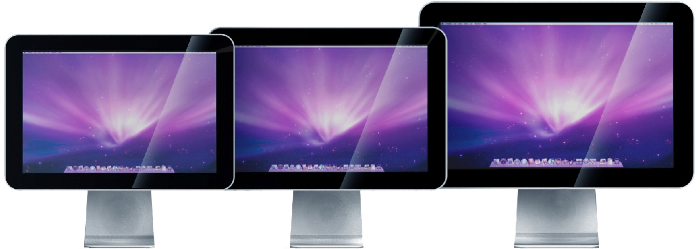
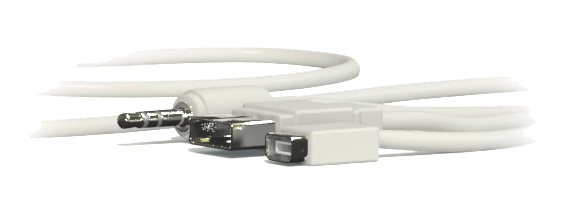


-m.jpg)






 Wesley Hilliard
Wesley Hilliard
 Amber Neely
Amber Neely
 William Gallagher
William Gallagher
 Christine McKee
Christine McKee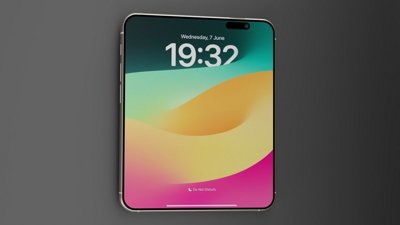
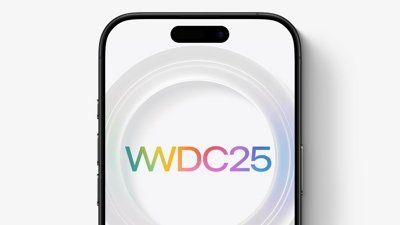

 Andrew Orr
Andrew Orr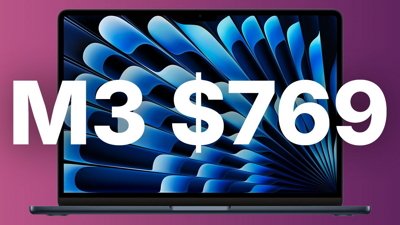

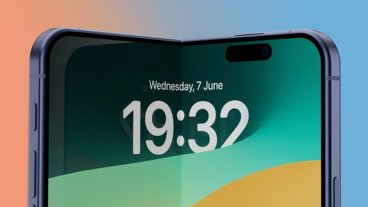
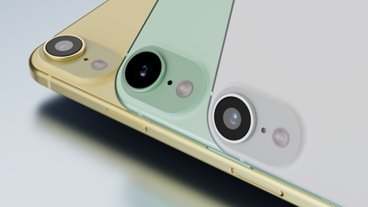







84 Comments
I wonder why the bezel is so wide when other monitors are moving to thinner ones. IMO, that detracts from the esthetic value.
I wonder why the bezel is so wide when other monitors are moving to thinner ones. IMO, that detracts from the esthetic value.
Yeah it makes them certainly look uglier than the Apple product.
I've noticed that they're using fairly low end panels as well (read non IPS) and there's no mention of VESA mounting which to me is an oversight because it limits what you can do for mounting options.
Adaptors aren't hugely unattractive IMO.
http://www.engadget.com/2009/03/30/m...ilable-for-20/
At least not enough to make me want to use a very expensive Apple display or some unknown brand display.
I'd rather just buy an adaptor to a port that is much more widely supported so that I have more options.
Yeah, non-IPS and the 24" can't do 1920 X 1200.
This is a fail for power users. Might be a decent complement to Mac Mini systems.
Adaptors aren't hugely unattractive IMO.
http://www.engadget.com/2009/03/30/m...ilable-for-20/
At least not enough to make me want to use a very expensive Apple display or some unknown brand display.
I'd rather just buy an adaptor to a port that is much more widely supported so that I have more options.
I can't find the post or thread, but I recall reading in AI that the Engadget adaptor is not "upgradeable" or something like that.